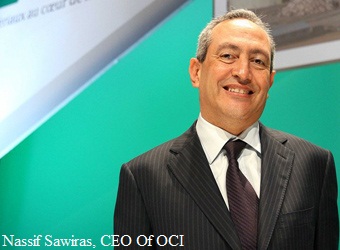While the instability since then has done little to reassure international investors and lenders, the business community are now counting on the army to keep to their strict six- to eight-month timeline for a handover to a civilian government.
But the Islamist leader’s abrupt departure, the rising death toll on the streets and the risk of more violence to come means the country’s economic future still hangs in the balance.
Nassef Sawiris, the billionaire chairman and chief executive of Orascom Construction Industries, Egypt’s largest listed company, said the interim government led by Adly Al Mansour “must learn from the failures of the previous government”.
“It has to address the immediate need to boost the economy,” he said. “Creating an environment that is attractive and appealing to foreign direct investment is absolutely essential.”
Orascom has had its share of regulatory problems in Egypt. In April, the concluded a high-profile tax dispute with the government and paid out US$1 billion (Dh3.67bn) in a settlement.
In his year in office, Mr Morsi, who was widely accused of doing nothing to prevent a looming economic collapse, presided over a nation in which the jobless rate surged a record high of 13.2 per cent and the Egyptian pound lost more than 15 per cent of its value against the dollar, contributing to higher inflation and raising the cost of basic goods for Egyptians.
The country’s budget deficit, the widest in the Middle East, ballooned as the country spent more on costly fuel subsidies and debt servicing.
Mr Sawiris blamed Mr Morsi’s Muslim Brotherhood-dominated administration for major failures in the economy, including a stagnant tourism sector which “has suffered tremendously”, and for alienating Gulf states.
The exception has been Qatar, which ploughed $5bn worth of loans and deposits into Egypt and bought $3bn in bonds, reflecting its support for the Brotherhood.
It is probable that other Gulf countries, including the UAE and Saudi Arabia, will now move in as the new financial supporters for the interim government, the business community says.
Funding from the Gulf will be especially important as questions arise over large loans pledged by the International Monetary Fund, the World Bank and the African Development Bank. Bankers say every major institution is re-evaluating its position in Egypt.
The military-backed political transition could affect lending to Egypt by major donors ranging from the IMF, which has been in talks for a $4.8bn loan, to the US and its annual disbursal of $1.5bn in military aid.
America has a policy against providing aid to countries that have had a military coup.
“The financial situation is critical and the only way out is the support of Arab countries with immediate cash,” said Alaa Arafa, founder and chairman of Arafa Holding, an Egyptian clothing conglomerate.
“Everybody is ready to pay the price of freedom, but this will take at least 6 months after the violence ends to show improvement.”
For now, optimism that Egypt’s interim leader will appoint a government that can address the country’s economic problems continues to buoy the markets.
Egypt’s stock exchange added about $3.2bn to its value on Thursday as the stock market climbed 7.3 per cent. It was the market’s biggest gain of the year and much of it was driven by local traders.
Foreign investors, on the other hand, convinced that the military-backed transition will delay economic recovery, sold about $15 million worth of shares. Many regard the events of the past few days as worrying, and particularly with regards to how the Muslim Brotherhood will respond to arrests and a clampdown by the military.
If the Brotherhood manages to mobilise all its supporters, estimated at between 10 and 20 per cent of Egypt’s population, in labour strikes and protests against the military’s action, this would have a detrimental impact on an already struggling economy.
Many international investment funds have steered clear of Egypt’s market since Hosni Mubarak was ousted in 2011, but some funds specialised in riskier assets are keeping a close eye.
Zin Bekkali, the chief executive of London-based investment boutique, Silk Invest, said “vested interests from all parties – ranging from the military, entrepreneur, the poor and the various foreign interests – are very high. We always have one of the parties hitting the brakes before things get completely out of control”.
While the “recent events are not a catalyst for more investments”, Mr Bekkali said “many Egyptian companies are dealing well with the situation”. The company has a 10 per cent allocation to Egypt as part of its Africa investments.
“It is a volatile transition but we don’t think that the economy will be derailed or experience an Algeria situation where there has been a lot of violence,” he said.
Source: The National


